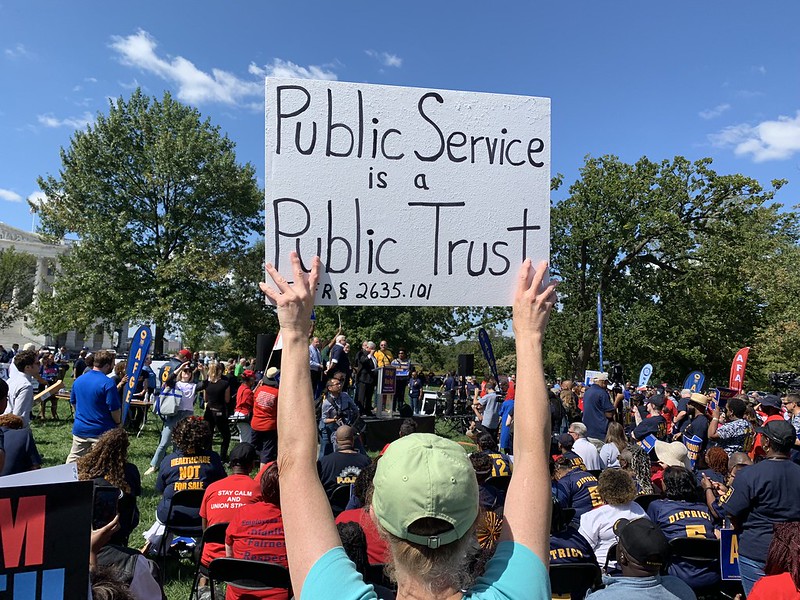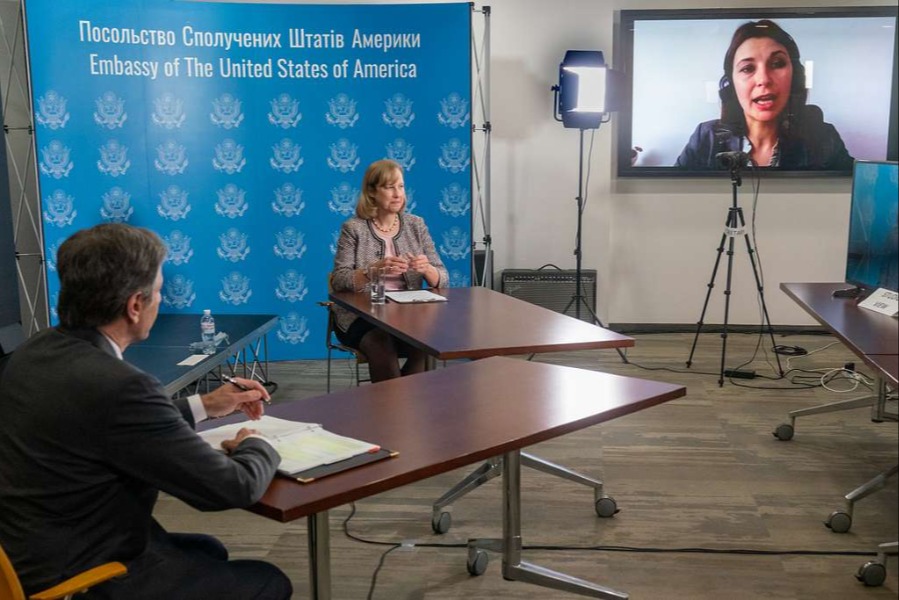Middle East Ticker: Assad Regime Nears Victory in Aleppo, Coptic Christians Under Attack in Egypt, and What Trump’s Secretary of State Pick Means for the Middle East
Assad Regime Nears Victory in Aleppo, but Retreats from Palmyra
Published by The Lawfare Institute
in Cooperation With

Assad Regime Nears Victory in Aleppo, but Retreats from Palmyra
After years of stalemate, the Assad regime’s six-week offensive to retake besieged rebel-held districts of Aleppo has nearly brought the entire city under government control. Syrian state media reported on Monday that 98 percent of the previously besieged territory has been taken by regime forces backed by Russian airstrikes, and a senior regime military official told Reuters that the offensive is in its “final stages.” "The battle in eastern Aleppo should end quickly. They (rebels) don't have much time. They either have to surrender or die," Lieutenant General Zaid al-Saleh said, speaking in the recently captured Sheikh Saeed neighborhood. More than 100,000 people have fled the fighting in recent weeks, including 13,300 people in the last day, according to Russian officials.
As Daniel Serwer notes at Peacefare, Assad is nearing a major victory in Aleppo, “[b]ut the war will still not be over.” Assad’s political survival is more likely than ever, especially with Donald Trump entering office next month, but rebels remain in control of swathes of the country and are being driven closer to extremist groups that are adapting their strategy from open warfare and territorial control to insurgency. That’s unlikely to change without reconstruction on a national scale. “Assad’s survival is not however the end of the story. Syria is a shambles. It needs hundreds of billions in aid,” Serwer writes, pointing to Iran and Russia as the nations that have the greatest responsibility to invest in Syria’s reconstruction. “Without a significant influx of resources, Syria will remain a fragmented basket case for many years to come.”
Russia and the Assad regime will remain preoccupied with the conflict for the foreseeable future. As regime forces were advancing over the weekend in Aleppo, they destroyed supply depots before retreating in Palmyra as an Islamic State offensive overwhelmed the city. The Islamic State previously captured the city May 2015, and the Russian government promoted the regime’s campaign to retake the city in March as a sign of the effectiveness of the Russian intervention, even staging a internationally-covered concert in the city’s ancient ruins this past May. Regime forces are reportedly regrouping outside the city and preparing for a counterattack, but the defeat demonstrates how insecure the regime’s victories can be.
Suicide Bomber Attacks Egyptian Coptic Community in Cairo
A suicide bomber detonated the explosive vest he was wearing outside a chapel near St. Mark’s Cathedral, the seat of the Coptic Orthodox faith, during Sunday mass this past weekend. At least 24 people were killed by the blast. At a funeral presided over by Pope Tawadros II, Egyptian President Abdel Fattah el-Sisi said that four people suspected of aiding the bomber have been arrested and police are searching for two others. He used the occasion to call for stricter anti-terrorism laws. “The attack brought us great pain, but we will never be torn apart,” he said. “God willing, we will win this war.” No group has claimed credit for the attack, but the Interior Ministry has identified the bomber as a 22-year-old man from Fayoum, a town 60 miles south of Cairo.
Pope Tawadros II called for unity at the funeral, telling mourners that “[t]his calamity is not against the church but against the homeland, against all of Egypt” and joining Sisi in a procession of flag-draped coffins. But, as Johannes Makar wrote for Foreign Policy last week, after some initial optimism when Sisi made overtures to the Coptic community after taking office in 2014, many Copts have grown frustrated with his administration. Violence targeting Christians has increased dramatically since 2011 and Sisi’s government has obstructed permits for renovation and construction of churches, many of which have been destroyed by arsonists. A crowd of Copts protested outside the cathedral on Sunday after the bombing, denouncing the police for not protecting Christian communities; similar protests have erupted after other attacks on the Coptic community over the course of the past year. Pope Tawadros II has tried to maintain the church’s relationship with Sisi, but the clergy has begun to break ranks, boycotting “reconciliation sessions” with perpetrators of crimes targeting Christians, and prominent members of the Coptic faith have called on the United States and United Nations to pressure the Egyptian government to better protect its Coptic citizens.
What Does Trump’s Reported Secretary of State Pick Mean for the Middle East?
President-elect Donald Trump is expected to tap ExxonMobil CEO Rex Tillerson as his choice for secretary of state. Steve Coll, who profiled Tillerson in his book Private Empire: ExxonMobil and American Power, writes that his nomination “will certainly confirm the assumption of many people around the world that American power is best understood as a raw, neocolonial exercise in securing resources.” Coll continues, stating that the company under Tillerson’s leadership has been “a ruthless and unusually aggressive corporation, but it is also rule-bound, has built up a relatively strong safety record, and has avoided problems such as prosecutions under the Foreign Corrupt Practices Act, even though it operates in many countries that are rife with corruption.”
While ExxonMobil has steered clear of corruption charges under Tillerson, University of Michigan professor Juan Cole notes that the company has not been as conscientious about international law and U.S. diplomacy in its business practices. Tillerson has pushed for deals to export oil from the Kurdistan Regional Government, circumventing the government in Baghdad. “Tillerson as head of Exxon-Mobil was perfectly happy to do a deal with Iraqi Kurdistan even if the deal angered the central Iraqi government,” Cole writes. “Getting the cooperation of the Iraqi government of PM Haydar al-Abadi in the fight against Daesh (ISIS, ISIL) is crucial to success in that campaign. But you could imagine a President Trump being rebuffed by the Baghdad government of al-Abadi for interfering in the country’s internal affairs via that KRG oil deal.” Both Coll and Cole also note that ExxonMobil has a vested interest in ending sanctions against Russia and Iran -- the KRG is planning to bypass Baghdad by exporting oil via Iran now that many sanctions have been waived under the terms of the Joint Comprehensive Plan of Action.
“The goal of ExxonMobil’s independent foreign policy has been to promote a world that is good for oil and gas production,” Coll writes. But he also states that ExxonMobil has operated by a code: “It does not interfere in the politics of host countries.” That seems to align closely with Trump’s own stated policy for the Middle East, which he reiterated at a recent rally. “We will stop looking to topple regimes and overthrow governments, folks,” he said in Cincinnati. “We will partner with any nation that is willing to join us in the effort to defeat ISIS and radical Islamic terrorism…In our dealings with other countries, we will seek shared interest wherever possible and pursue a new era of peace, understanding and goodwill.” Gerald Seib, writing in the Wall Street Journal, sees these remarks as “powerful indicators” that Trump will (as many have previously predicted) draw closer to Russia and Egypt and not advocate for Assad’s removal from power in Syria.
Tillerson does not appear to have discussed the potential nomination publicly, and it's an open question how his business experience will inform his diplomacy. After the controversial KRG deal, Tillerson told State Department officials on a conference call, “I had to do what was best for my shareholders.” Between now and his confirmation, Tillerson will have to explain how he understands U.S. interests in the world if his shareholders are going to be the U.S. public.





